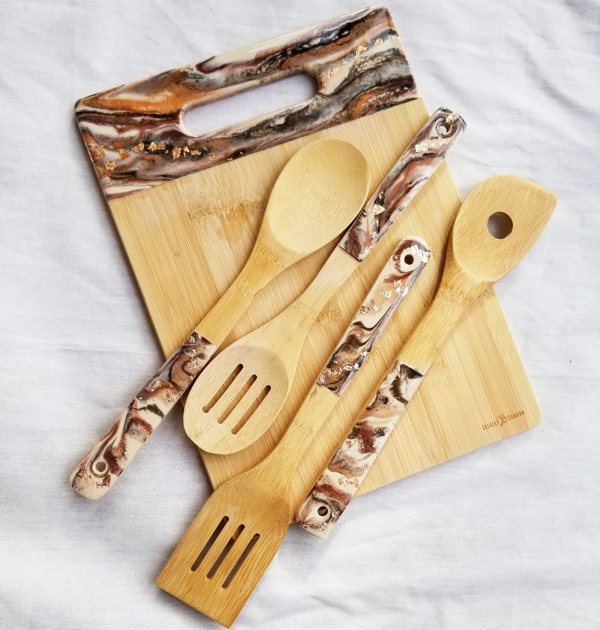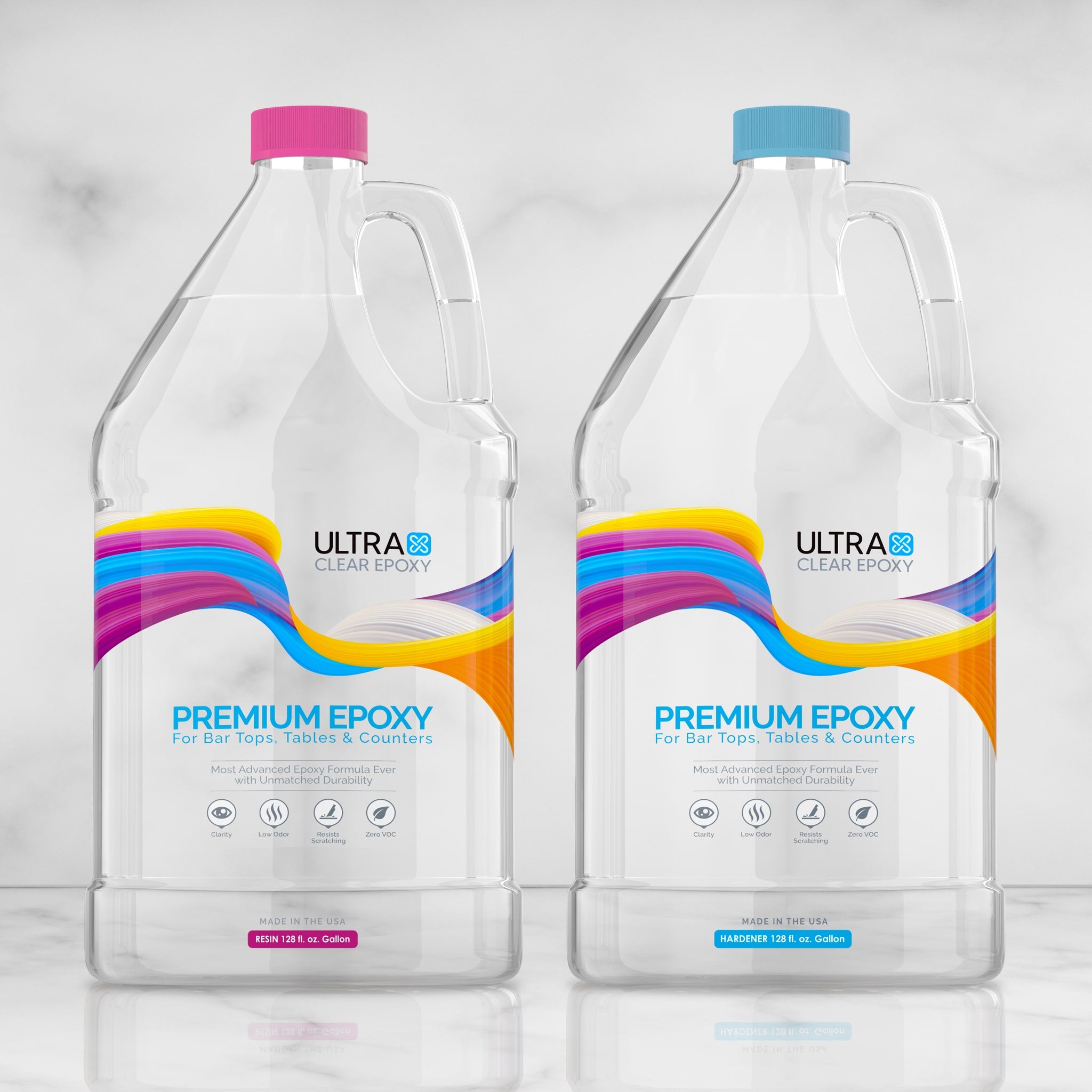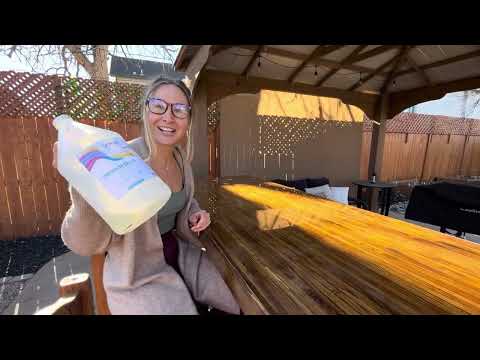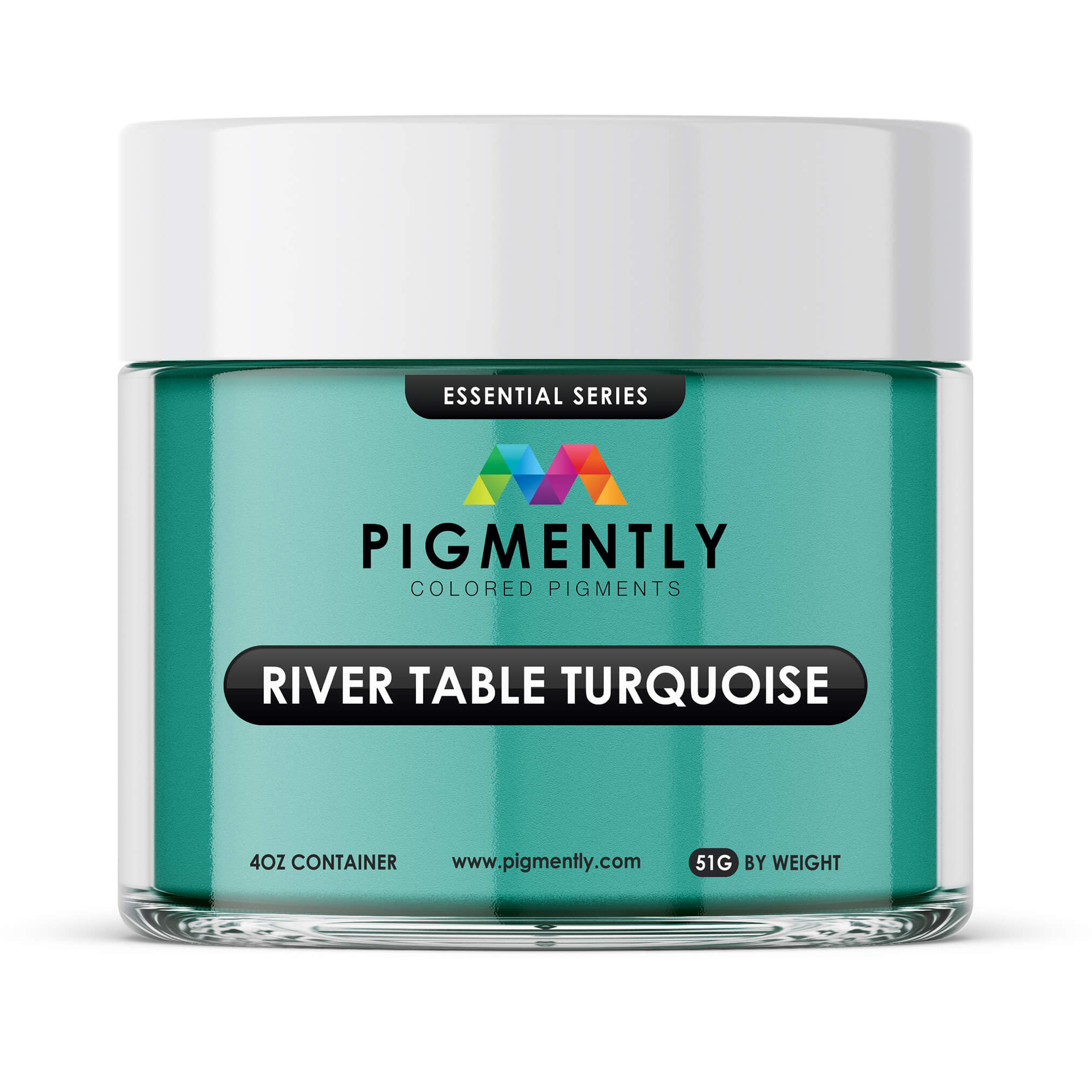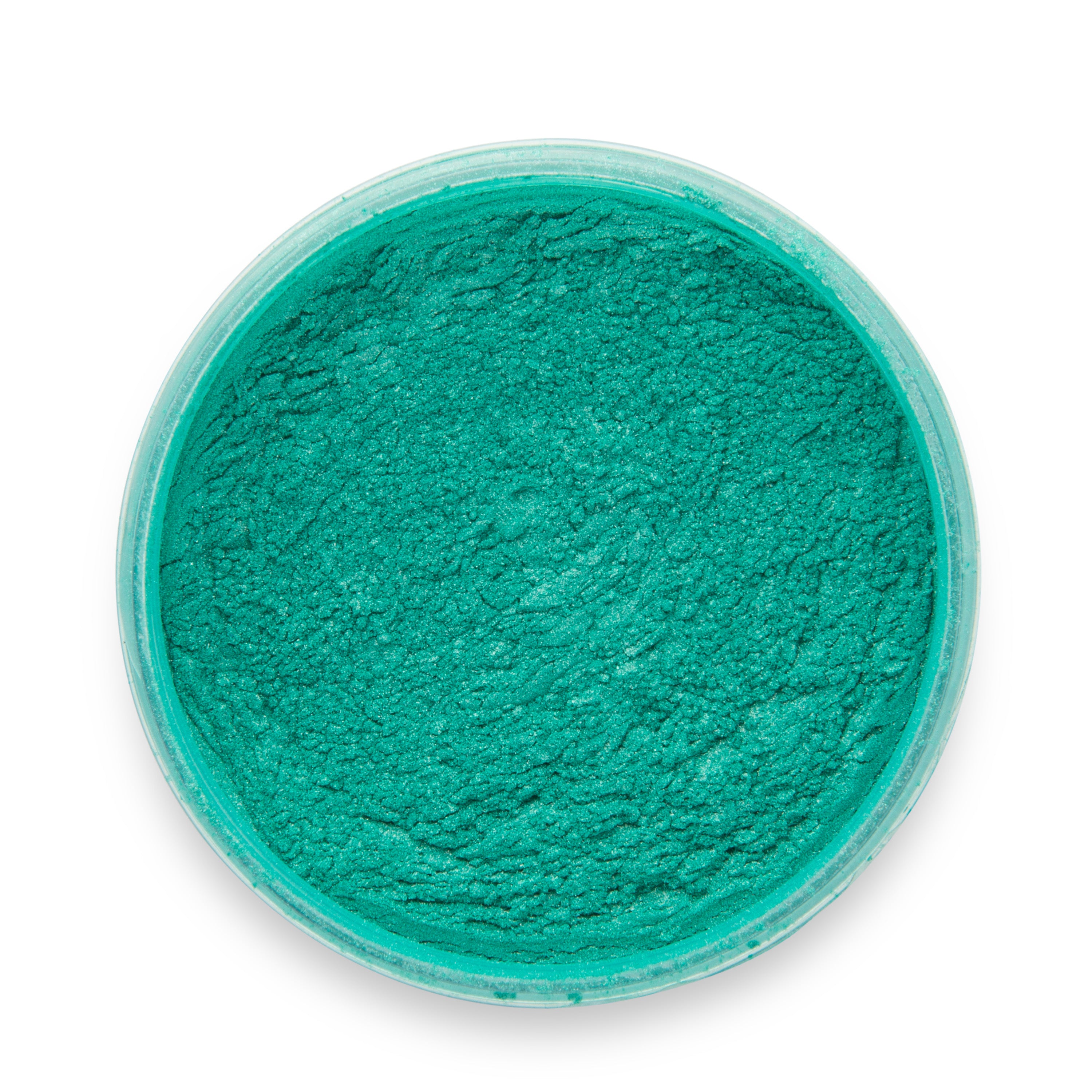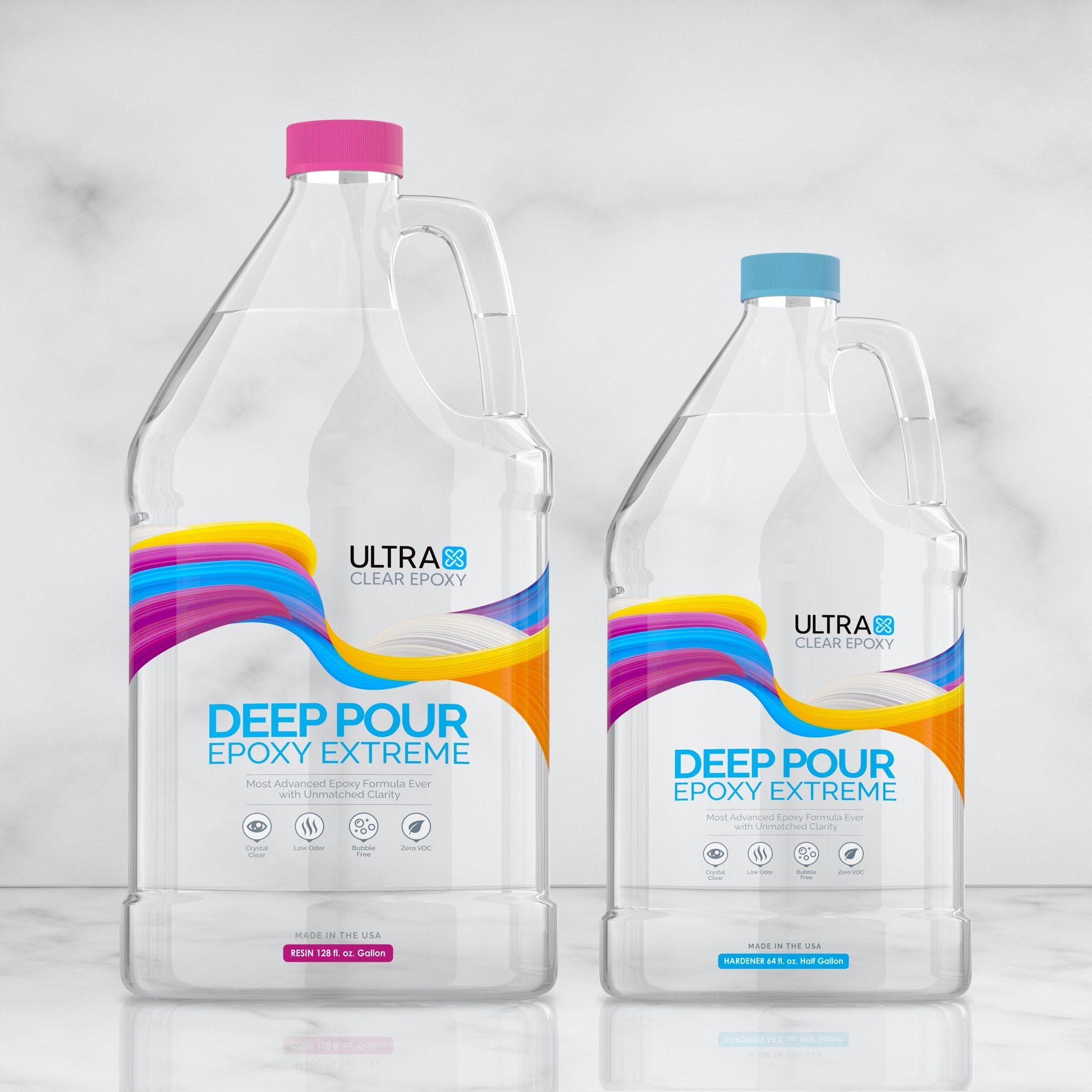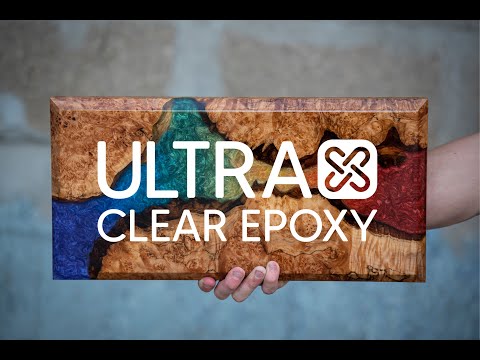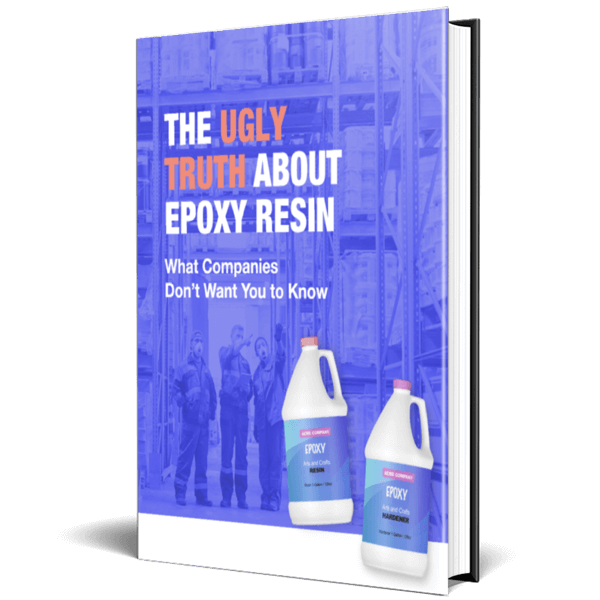Epoxy resin is often marketed as food safe, and to an extent it truly is. But there is a lot of misinformation out there that may cause some users to unwittingly make errant decisions regarding epoxy resin.
In this article, we'll attempt to clarify some of the confusion behind whether epoxy resin is food safe and in what ways it is safe to use.
Is epoxy resin actually food safe?
The first thing to understand is, yes, epoxy resin is food safe—once fully cured.
Primarily, this is generally regarding incidental contact with epoxy surfaces by food. In other words, your food is not going to be made toxic just because it touched a cured epoxy resin surface (which is non-toxic as a cured surface).
That being said, there is a couple of factors that matter here:
-
Is the epoxy fully cured? Epoxy is particular about its curing conditions. If you maintain them during the curing process, the final hardening won't take long, but if not, it can take longer than most estimates, so give it that extra time if you can't maintain the climate.
If nothing else, you definitely shouldn't let food touch an epoxy finish until it is cured.
- Is the epoxy surface in good condition? If your surface is chipping or damaged for some reason, you'll want to repair it before you start proclaiming the "5-second rule". It needs to be smooth, without resin particles.
Keep these things in mind when you're deciding how you feel about a particular resin surface.
Next, we'll answer some questions we've received about this subject.
FAQs: Epoxy Resins and Food
Question #1: Can you cut food on epoxy countertops?
No, not really. It's a bad idea because sharp knives can damage an epoxy finish, just as they can a cutting board.
If you need to cut food, make sure it's on an intended surface that you expect to dispose of at some point, like a plate or an actual cutting board.
Question #2: Is epoxy safe to drink from?
We don't recommend using resin for the interior of a drinking cup.
For one, epoxy doesn't handle extremely hot beverages well. Temperatures of about 135°F can cause marked damage to epoxy resin and temporarily soften it back into a liquid state.
On the other hand, if you can ensure you'll only drink cool (not frozen) or room temperature beverages, it is likely okay to use an epoxy resin cup for drinking, provided it was made properly and has fully cured.
You can, however, use epoxy resin on the exterior of cups for decorative purposes—in fact, we have an entire guide dedicated to doing just that with tumblers and similar cups.
Question #3: Can I use epoxy on a cutting board?
You can, but try to limit it to the fringe by coating either a handle (if there is one) or just a portion of the surface area from one of the edges.
You shouldn't cut food on an epoxy surface, but epoxy can be used as a beautiful accent for your cutting board, especially with colorants, to deliver a personal aesthetic flourish.
Question #4: How do you make epoxy resin food safe?
By letting it fully cure. Epoxy resin becomes food safe only after it has finished hardening and presents a clean, smooth, and sturdy surface.
Don't use epoxy resin to make dishes you intend to eat off of. It's fine to make them if they're merely decorative, though.
Question #5: Does the FDA certify epoxy as food safe?
The FDA does not directly certify individual epoxy brands on this basis. However, they have given a stance on BPA (Bisphenol A) and epoxy resin usage in food contact application.
Bisphenol A (BPA): Use in Food Contact Application
- "FDA’s current perspective, based on its most recent safety assessment, is that BPA is safe at the current levels occurring in foods."
- "BPA is also found in epoxy resins, which act as a protective lining on the inside of some metal-based food and beverage cans."
This information directly from the FDA website is current as of April 20, 2023. Even now, it seems that the FDA still considers it to not be a concern.
Additional Resources
We hope this article has clarified some things for you.
Here are some additional resources you may find useful:
- How to wash away resin and epoxy on your hands and skin - Cured epoxy may be safe, but it's best to avoid consistent contact with uncured epoxy. Here's how to clean it off in the case of a spill or accident.
- Epoxy: Proper storage, shelf life, and preventing "yellowing" - Discover how to store your epoxy to preserve its shelf life in this handy guide.
- Two easy methods for cleaning food-safe resin cups and more - Keeping your resin cups/tumblers clean is important for hygiene. Learn how here!
Have questions? Want advice? Contact us!
If you have any questions about food-safe uses for epoxy, or if you'd like assistance in planning an epoxy project, please reach out to us at UltraClear Epoxy—our epoxy experts are ready to assist!
You can contact us via phone or email here. During business hours, you can also text chat online with one of our resin specialists by clicking the Help button at the bottom of your screen.
In our online store, you'll find a variety of useful tools and supplies, ideal for resin projects, plus our award-winning UltraClear Bar & Table Top Epoxy and our UltraClear Deep Pour Epoxy.

